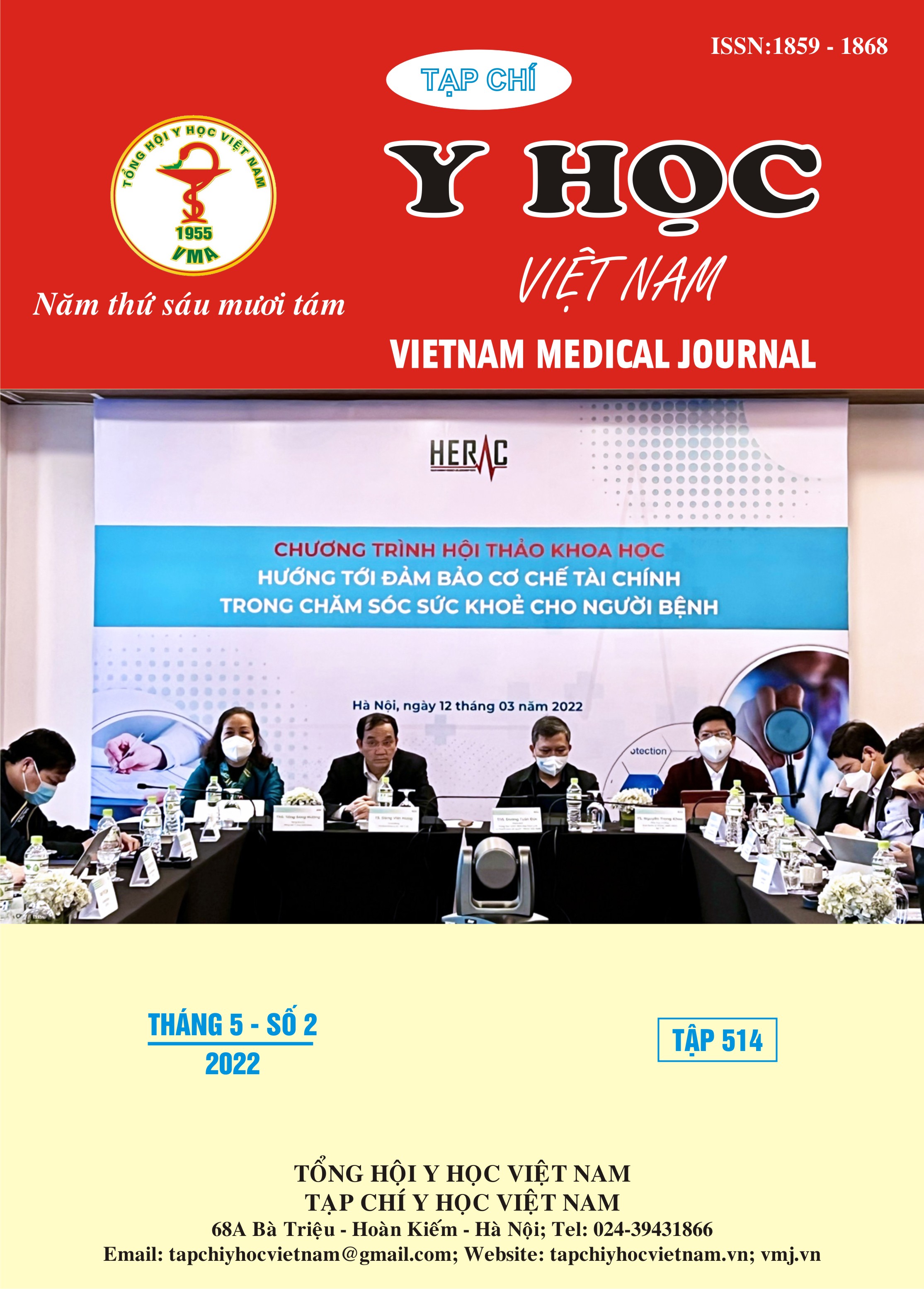CHARACTERISTICS OF MAGNETIC RESONANCE IMAGING IN PATIENTS WITH KNEE OSTEOARTHRITIS
Main Article Content
Abstract
Aim: Assessement of knee injuries on magnetic resonance imaging to serve the classification, prognosis and selection of appropriate treatment methods for patients with knee osteoarthritis. Objects and methods: 60 knee joints - 30 patients, 26 female, 4 male, mean age 58.63 ± 11.11 years, were diagnosed degenerative according to American Society of Rheumatology (ACR), stage II - III according to Kellgren and Lawrenc. All had a full clinical examination and magnetic resonance imaging of both knees. The metrics are measured on the machine's software. Results: The articular cartilage at the inside condyle was thinner (1.35±0.14 mm) than the intercondylar (1.57±0.11mm) and outside condyle (1.40±0. 10mm). The cartilage thickness of the patellar joint was 1.56 ± 0.09 mm . Injury to meniscus is mainly internal meniscus: tear 41.67%), convex 48.3%. 100% have the knee effusion on magnetic resonance. Edema of the femoral bone accounts for 80%, the tibia 60% and the patella only 36.67%. Conclusion: Osteoarthritis imaging of the knee on magnetic resonance was mainly eroding the cartilage layer at the inside condyle, outside condyle, intercondylar and patellar joint. Injury to the meniscus was mainly the internal meniscus. The edema of the femoral and tibial bones was predominant.
Article Details
References
2. Fransen M, L. Bridgett, L. March et al (2011). The epidemiology of osteoarthritis in Asia. Int J Rheum Dis, 14 (2), 113-121.
3. Bùi Hải Bình (2016). Nghiên cứu điều trị bệnh thoái hóa khớp gối nguyên phát bằng liệu pháp huyết tương giàu tiểu cầu tự thân. Luận án tiến sỹ Y học, Trường đại học Y Hà Nội.
4. Nguyễn Xuân Thiệp (2013). Nghiên cứu lâm sàng, hình ảnh X quang qui ước và hình ảnh cộng hưởng từ ở bệnh nhân thoái hóa khớp gối, Luận văn Thạc sỹ y học. Học viên quân Y.
5. Fernandez-Madrid F, Karvonnen R.L, Teitge R.A. et al (1994). MR features of osteoarthritis of the knee. Magn Reson Imaging, 12, 703-709.
6. Wu H, Webber C, Fuentes C.O. et al (2007). Prevalence of knee abnormalities in patients with osteoarthritis and anterior cruciate ligament injury identified with peripheral magnetic resonance imaging: a pilot study. Can Assoc Radiol J, 58 (3), 167-175.
7. Potter H.G, Linklater J.M, Allen A.A. et al (1998). Magnetic Resonance Imaging of Articualr Cartilage in the knee. J Bone Joint Surg Am, 80 (9), 1276-1284.
8. Trần Viết Tiến và cộng sự (2015). Nghiên cứu ứng dụng tế bào gốc tự thân trong điều trị bệnh thoái hóa khớp. Đề tài độc lập cấp nhà nước, Học viện quân Y.
9. Hill C.L. et al (2001). Knee effusions, popliteal cysts, and synovial thickening: association with knee pain in osteoarthritis (abstract). J Rheumatol, 28 (6), 1330-1337.
10. Felson D.T, Lawrence R.C, Dieppe P.A (2000). Osteoarthritis: new insights. Part I: The disease and its risk factor. Ann Intern Med, 133, 635-646.


